
Find Help
More Items From Ergsy search
-

How are hosepipe ban restrictions communicated to the public?
Relevance: 100%
-

Do hosepipe bans apply to public parks and gardens?
Relevance: 68%
-

Is a hosepipe ban legally enforceable?
Relevance: 64%
-

What is a hosepipe ban?
Relevance: 64%
-

Is a hosepipe ban legally enforceable?
Relevance: 63%
-

Who enforces hosepipe bans?
Relevance: 62%
-
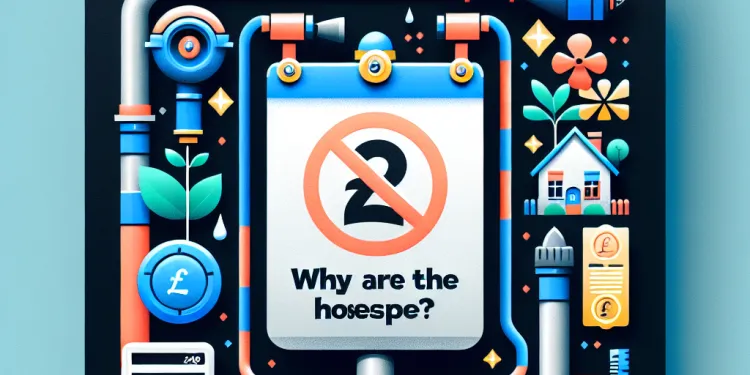
Why are hosepipe bans imposed?
Relevance: 59%
-
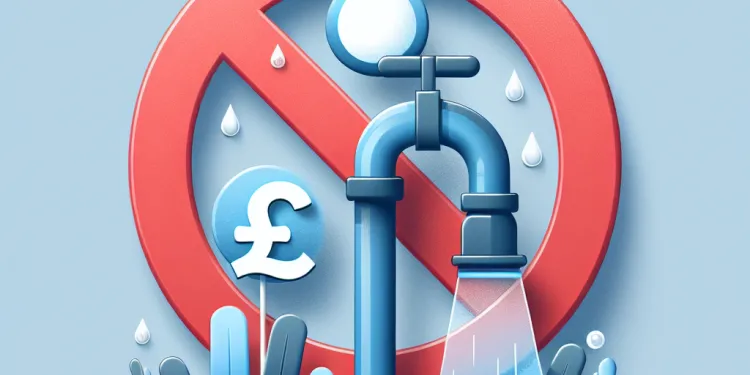
What happens if a hosepipe ban is ignored?
Relevance: 57%
-

Are there any exceptions to a hosepipe ban?
Relevance: 57%
-

Can water companies enter my property to enforce a hosepipe ban?
Relevance: 57%
-
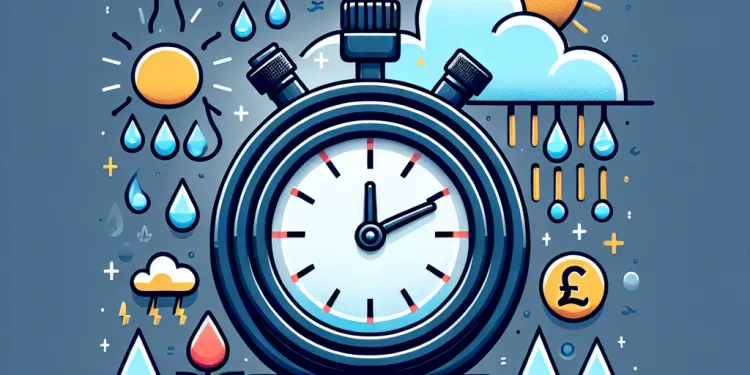
How long do hosepipe bans last?
Relevance: 56%
-

Does Thames Water notify customers before a hosepipe ban is enforced?
Relevance: 55%
-

How do hosepipe bans affect farmers?
Relevance: 55%
-

What is the penalty for violating a hosepipe ban from Thames Water?
Relevance: 55%
-

How can I check if there is a hosepipe ban in my area?
Relevance: 53%
-

Is using a pressure washer allowed during a hosepipe ban?
Relevance: 53%
-

Can I use a watering can during a hosepipe ban?
Relevance: 52%
-

Does Thames Water impose hosepipe bans more frequently than other water authorities?
Relevance: 50%
-

Does Thames Water enforce a hosepipe ban more than other water authorities?
Relevance: 49%
-

Under what conditions does Thames Water typically impose a hosepipe ban?
Relevance: 49%
-

Can businesses be exempt from hosepipe bans?
Relevance: 49%
-
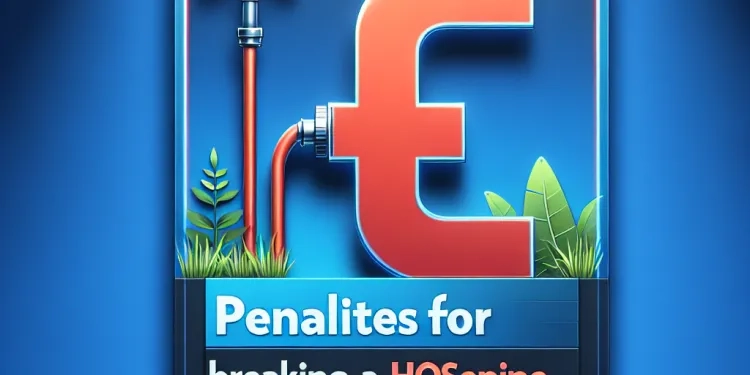
What are the penalties for breaking a hosepipe ban?
Relevance: 41%
-

Is there public support for the social media ban in Australia?
Relevance: 41%
-

Do hosepipe bans apply to all regions in a country?
Relevance: 40%
-

Can hosepipes be used for irrigation during a ban?
Relevance: 37%
-

What is the public opinion on a potential social media ban for under 16s in the UK?
Relevance: 36%
-

Can I report a neighbor for using a hosepipe during a ban?
Relevance: 36%
-
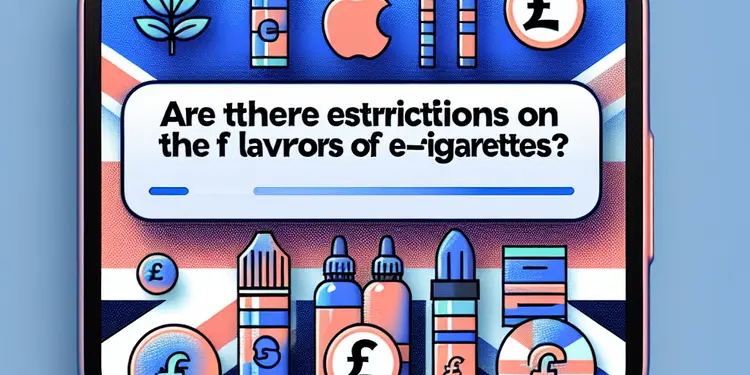
Are there restrictions on the flavors of e-cigarettes?
Relevance: 35%
-

How often does Thames Water enforce hosepipe bans?
Relevance: 34%
-

Have children found ways to circumvent the social media ban?
Relevance: 30%
-

What measures were put in place to enforce the social media ban?
Relevance: 29%
-

Is the UK planning to introduce a social media ban for those under 16?
Relevance: 29%
-

How has the social media industry reacted to the ban?
Relevance: 28%
-
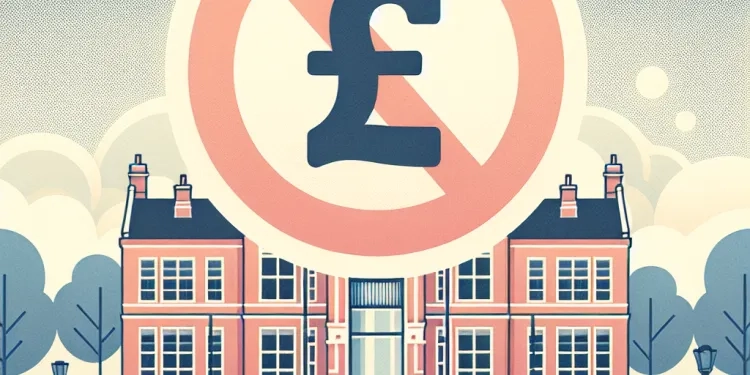
Calls to Ban Vapes Near School Grounds Gain Momentum
Relevance: 28%
-

How is the success of the social media ban measured?
Relevance: 28%
-

Who is pushing for a social media ban for under 16s in the UK?
Relevance: 28%
-

What role do schools play in supporting the social media ban?
Relevance: 27%
-

Is the UK introducing a Social Media ban for under 16's?
Relevance: 27%
-
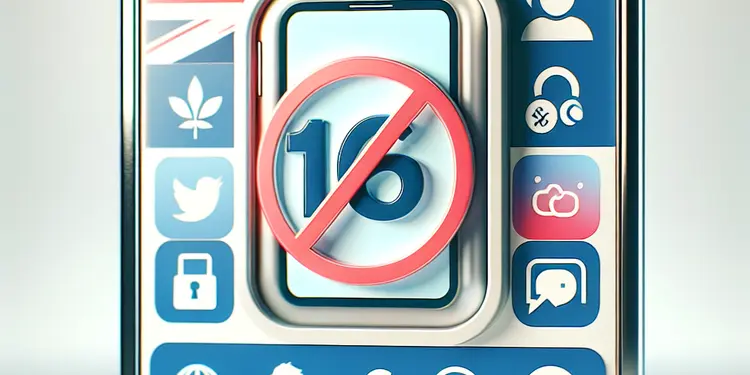
Are there any countries that have implemented a social media ban for under 16s?
Relevance: 27%
-

How soon could a social media ban for under 16s be implemented in the UK?
Relevance: 27%
Introduction
A hosepipe ban is a measure implemented by water companies in the UK during periods of drought to conserve water. The communication of such restrictions to the public is crucial to ensure compliance and effective water conservation. Various channels are used to disseminate information about hosepipe bans.
Water Companies' Announcements
The primary responsibility for communicating hosepipe bans falls on the water companies themselves. They typically issue official announcements on their websites, detailing the reasons for the ban, the areas affected, and the duration. These announcements often include guidelines on what activities are restricted and any exemptions that might apply.
Media Coverage
Media outlets play a significant role in communicating hosepipe ban restrictions. Both national and local newspapers, as well as radio and television stations, report on the new restrictions. These media outlets help reach a wider audience and ensure that the message is disseminated quickly and effectively. Online news platforms further amplify the reach and offer timely updates on the situation.
Social Media
Social media platforms are increasingly used by water companies to communicate hosepipe bans. Companies post updates on platforms like Twitter, Facebook, and Instagram to engage directly with customers. Social media enables real-time communication and provides an avenue for customers to ask questions and receive immediate responses, which helps to clarify any uncertainties.
Email and Direct Mail
Water companies also use email and direct mail to notify their customers about hosepipe bans. They may send out newsletters or direct communications that explain the restrictions, why they are necessary, and how customers can help conserve water. Direct mail is particularly useful for reaching customers who may not use digital media or social media regularly.
Community Engagement and Outreach
Community engagement plays a vital role in the communication of hosepipe bans. Water companies often collaborate with local councils and community organizations to spread the word. Public meetings, workshops, and informational sessions may be held to educate residents about the importance of water conservation during a ban. This type of engagement ensures that vulnerable and hard-to-reach groups are informed.
Conclusion
Effectively communicating hosepipe ban restrictions requires a multi-channel approach, utilizing digital media, traditional media, direct communication, and community engagement. By employing a variety of communication methods, water companies can ensure that the public is well-informed about the restrictions and understands the importance of complying with them to conserve water resources.
What Is a Hosepipe Ban?
A hosepipe ban is when water companies in the UK tell people not to use hosepipes. This happens when there is not enough water, like during a dry period. It is important that people know about this ban so they can save water. The companies use different ways to tell people about these rules.
How Companies Tell People
Water companies have the main job of telling people about the hosepipe ban. They usually do this on their websites. They explain why the ban is needed, where it is happening, and how long it will last. They also tell people what they can't do with water and if there are any exceptions.
News and Media
News outlets like newspapers, radio, and TV also help spread the word about hosepipe bans. They tell lots of people quickly about the new rules. Websites with news updates help get this information to even more people.
Using Social Media
Water companies also use social media to talk about hosepipe bans. They post on Twitter, Facebook, and Instagram to tell people directly. This way, people can ask questions and get quick answers, which helps clear up confusion.
Emails and Letters
Water companies may also send emails or letters to tell people about the ban. These messages explain why the ban is needed and how people can help save water. Sending letters is good for people who do not use the internet or social media often.
Working with the Community
Water companies sometimes work with local groups to tell people about the ban. They might hold public meetings or workshops to teach people why saving water is important. This helps make sure everyone, including those who might not hear about it otherwise, knows what to do.
Why It Matters
It is important to use many ways to tell people about hosepipe bans, like online updates, news, emails, and community talks. This makes sure everyone knows about the rules and understands why saving water is important.
Frequently Asked Questions
What methods are used to communicate hosepipe ban restrictions to the public?
Authorities use various methods including official websites, local news outlets, social media, and direct mail to inform the public about hosepipe bans.
Can I receive alerts about hosepipe bans on my phone?
Yes, many water companies offer SMS or email alerts to notify residents about hosepipe bans in their area.
How do local news outlets help in communicating hosepipe bans?
Local newspapers, radio, and TV stations report on hosepipe bans as part of their news coverage, reaching a broad audience.
Are hosepipe bans published on water company websites?
Yes, water companies usually have dedicated sections on their websites to provide detailed information about any hosepipe bans.
Do social media platforms play a role in announcing hosepipe bans?
Yes, water companies and local authorities often use platforms like Twitter and Facebook to quickly disseminate information about hosepipe bans.
Is direct mail used to inform residents about hosepipe bans?
Yes, direct mail is often used to ensure that all residents, including those without internet access, are informed about hosepipe bans.
Can I find information about hosepipe bans on official government websites?
Yes, government websites, especially those focused on environment and water resources, may provide updates on hosepipe bans.
Are there any mobile apps to track hosepipe bans?
Some water companies offer mobile apps that can notify users about water restrictions, including hosepipe bans, in their area.
How do community noticeboards assist in communicating hosepipe bans?
Community noticeboards in public places can display posters and notices about hosepipe bans to inform residents.
Do utility bills include information about hosepipe bans?
Occasionally, utility bills may include notices or inserts about current or upcoming hosepipe bans.
Can I call my water provider to ask about hosepipe bans?
Yes, most water providers have customer service lines where you can inquire about hosepipe bans and other water usage restrictions.
How do environmental organizations help spread awareness about hosepipe bans?
Environmental groups may share information about hosepipe bans through their networks and social media to raise public awareness.
Are public meetings used to discuss hosepipe bans?
Yes, community or town hall meetings may be held to discuss water issues, including hosepipe bans, allowing for public engagement.
How do local councils contribute to announcing hosepipe bans?
Local councils may issue press releases or use their communication channels to alert residents about hosepipe bans.
Can electronic signs in public places be used to announce hosepipe bans?
Electronic signs, such as those on highways or at public transit stations, may display notifications about water restrictions including hosepipe bans.
Are there any FAQs or help pages provided by water companies about hosepipe bans?
Yes, many water companies offer FAQs or help pages on their websites to address common questions about hosepipe bans.
How can schools help communicate hosepipe ban restrictions?
Schools can notify students and parents about hosepipe bans through newsletters or announcements, promoting awareness among families.
Do emergency broadcast systems announce hosepipe bans?
While typically used for more critical alerts, emergency broadcast systems may occasionally relay information about widespread hosepipe bans.
Are flyers or pamphlets distributed to inform about hosepipe bans?
In some areas, flyers or pamphlets may be distributed door-to-door or in public places as a way to inform residents about hosepipe bans.
How can neighbors help each other stay informed about hosepipe bans?
Neighbors can share information about hosepipe bans through word-of-mouth or community messaging apps to keep each other informed.
How do people find out about hosepipe bans?
This is a question about how to tell people they cannot use a hosepipe.
There are different ways to share this news:
- TV and radio news
- Newspapers
- Emails or letters sent to homes
- Signs in public places
- Social media, like Facebook and Twitter
Some tips to help remember:
- Look for news updates on TV or the radio.
- Read letters from the water company.
- Ask family or friends if they heard about a ban.
People in charge tell us about hosepipe bans in different ways. They use websites, local news, social media, and letters in the mail to give us the information.
Can I get messages about hosepipe bans on my phone?
You can get messages on your phone about hosepipe bans. These messages will tell you if you can't use your hosepipe.
Here are some ways to get the messages:
- Sign up for text messages.
- Download an app that sends alerts.
- Check your emails for updates.
If you have trouble reading, you can ask someone to help you sign up for these messages.
Yes, water companies can send text messages or emails to tell people about hosepipe bans in their area.
How do local news help tell people about hosepipe bans?
Local newspapers, radio, and TV tell people about hosepipe bans. They share this news with lots of people.
Do water company websites say if hosepipe bans are in place?
Yes, water companies have parts on their websites that tell you all about hosepipe bans in simple words.
Do apps like Facebook and Twitter tell us about hosepipe bans?
Explanation: This question asks if websites like Facebook and Twitter help to let people know when they can't use garden hoses.
Tips: To understand better, you can ask someone to explain or look for pictures and videos online that show what a hosepipe ban is.
Yes, water companies and local councils often use platforms like Twitter and Facebook to quickly share news about hosepipe bans.
Do people get letters to tell them about hosepipe bans?
Yes, letters are sometimes sent to make sure everyone knows about hosepipe bans. Even people who do not use the internet can find out this way.
Tip: If you find reading difficult, ask someone to read with you or read out loud.
Can I find out about hosepipe bans on government websites?
You can look for hosepipe ban information on government websites.
Here are some tips to help you:
- Search for "hosepipe ban" on the government website.
- Ask someone to help you if you find it hard to search.
- Use online tools that read text out loud.
Yes, government websites can tell you about hosepipe bans. Look at the ones about the environment and water. They might have new updates.
Can I use a phone app to check hosepipe bans?
You can use some phone apps to check if there is a hosepipe ban in your area. These apps can tell you where and when you cannot use a hosepipe.
If reading is difficult, you can ask someone to help you with the app. You can also use text-to-speech tools. These tools read the text out loud for you.
Some water companies have apps for phones. These apps can tell you if there are rules about using less water, like not using a hose, where you live.
How do noticeboards help tell people about hosepipe bans?
A community noticeboard is where you can see important news. It is like a big board where we put messages for everyone to read.
When there is a hosepipe ban, it means we need to save water and can't use a hose to water the garden or wash cars.
Noticeboards help by telling people about the ban so they know not to use the hosepipe.
Some tools that can help understand notices are:
- Read with a helper like a teacher or a parent.
- Use pictures and drawings that explain the message.
- Listen to someone read the notice out loud.
People can put up posters and notices about hosepipe bans on community boards in places everyone visits. This helps tell everyone in the area.
Do utility bills tell you about hosepipe bans?
A utility bill might not tell you if there is a hosepipe ban. You can check a few other places to find out:
- Look at the water company’s website.
- Call the water company and ask.
- Read local news online or in newspapers.
If reading is hard, try these tips:
- Ask someone you trust to help you read.
- Use apps that read text out loud.
- Look for short videos that explain bans.
Sometimes, your water bill might have a notice about hosepipe bans. This tells you when you can and can't use a hosepipe at home.
Can I phone my water company to ask about hosepipe rules?
Yes, you can. It's okay to call them if you want to know about using a hosepipe. They will tell you if there are any rules or bans.
Tip: You can try writing down your questions before you call. This will help you remember what to ask.
Helpful tool: If you find it hard to talk on the phone, you can ask someone to help you make the call.
Yes, most places that give us water have phone numbers you can call. You can ask them if there are any rules about using hoses or other ways to use water.
How do groups that care for nature help people know about hosepipe bans?
Groups that care about the environment can tell people about hosepipe bans. They use the internet and social media to let everyone know.
Do people talk about hosepipe bans at public meetings?
People meet in groups to talk about stopping the use of hosepipes. These meetings are open for everyone to join. People share ideas and thoughts. It's a good way to learn more and get answers.
If it's hard to read, you can:
- Use pictures or drawings to help understand.
- Ask someone to read it with you.
- Listen to an audio version if there is one.
Yes, people can have meetings in the town to talk about water problems. They can also talk about hosepipe bans. Everyone can join in and share their ideas.
How do local councils help tell people about hosepipe bans?
Local councils help by:
- Putting up signs in parks or on streets to let people know.
- Sending letters or flyers to homes to give information.
- Posting news on their websites or social media pages.
- Working with water companies to share important updates.
Tips for more help:
- Ask someone to read the information with you.
- Use a computer tool that reads text out loud.
Local councils can tell people about hosepipe bans by sending out news updates or using their usual ways to talk to residents.
Can we use electric signs in public places to tell people about hosepipe bans?
An electric sign is a big screen that shows messages. You see them in places like bus stops, train stations, or on roads.
A hosepipe ban means you cannot use a hosepipe to water the garden or wash the car. This happens when there is not enough water.
Using electric signs can help tell lots of people quickly. It makes it easy for everyone to know that there is a hosepipe ban.
If you find it hard to read long words, you can ask someone to help. You can also use text-to-speech tools to hear the message out loud.
Electronic signs are big screens you see on roads and at bus or train stations. These signs might show messages to tell you about water rules, like when you can't use a garden hose.
Do water companies have FAQs or help pages about hosepipe bans?
Do water companies have any FAQs?
FAQs are questions and answers that help people understand something. Check their website to find them.
What are hosepipe bans?
Hosepipe bans mean you cannot use a hose to water the garden or wash the car.
What should I do?
Look for FAQs or help pages on the water company’s website.
Ask someone for help if you need it.
Yes, lots of water companies have question-and-answer pages on their websites. These pages help you find answers to common questions about using a hosepipe.
How can schools talk about hosepipe ban rules?
Schools can help by telling everyone about the rules.
They can use simple words and pictures. This makes it easy for everyone to understand.
Schools can also show a video. Videos make learning fun and easy.
Families can get a letter. The letter can explain the hosepipe rules.
Teachers can have a class about saving water. They can explain why it's important.
Schools can share apps that help remember the rules. Apps can send reminders to people's phones.
Schools can tell students and parents about hosepipe bans by sending newsletters or making announcements. This helps families to know what's happening.
Tools to help understand:
- Ask someone to read it with you.
- Use text-to-speech to listen to the text.
- Highlight important words.
Do emergency broadcast systems tell us about hosepipe bans?
A hosepipe ban means you can't use a hose to water the garden or wash the car. This can happen when there isn't enough water.
Emergency broadcast systems are ways to tell people important news quickly. They are on TV, radio, or on your phone.
But usually, these systems tell us about big emergencies like bad weather or fires, not about hosepipe bans.
If you want to know about hosepipe bans, check local news, websites, or letters from your water company.
Try asking someone for help if you are unsure where to look.
Emergency broadcast systems are usually used for big emergencies. But sometimes, they tell us about hosepipe bans too.
Do people get flyers or pamphlets to learn about hosepipe bans?
Sometimes, people give out flyers or small papers at doors or in busy places. These papers tell people about not using garden hoses.
How can neighbors help each other learn about water hose rules?
1. Talk to each other and share news.
2. Use a community bulletin board to post updates.
3. Set up a group chat for quick messages.
4. Tell each other about important changes.
5. Use phone calls or letters to share news with those who have no internet.
It's nice to help each other!
Neighbors can tell each other about hosepipe bans by talking to each other or using community messaging apps. This helps everyone know what’s going on.
Useful Links
This website offers general information and is not a substitute for professional advice.
Always seek guidance from qualified professionals.
If you have any medical concerns or need urgent help, contact a healthcare professional or emergency services immediately.
Some of this content was generated with AI assistance. We’ve done our best to keep it accurate, helpful, and human-friendly.
- Ergsy carfully checks the information in the videos we provide here.
- Videos shown by Youtube after a video has completed, have NOT been reviewed by ERGSY.
- To view, click the arrow in centre of video.
- Most of the videos you find here will have subtitles and/or closed captions available.
- You may need to turn these on, and choose your preferred language.
- Go to the video you'd like to watch.
- If closed captions (CC) are available, settings will be visible on the bottom right of the video player.
- To turn on Captions, click settings .
- To turn off Captions, click settings again.
More Items From Ergsy search
-

How are hosepipe ban restrictions communicated to the public?
Relevance: 100%
-

Do hosepipe bans apply to public parks and gardens?
Relevance: 68%
-

Is a hosepipe ban legally enforceable?
Relevance: 64%
-

What is a hosepipe ban?
Relevance: 64%
-

Is a hosepipe ban legally enforceable?
Relevance: 63%
-

Who enforces hosepipe bans?
Relevance: 62%
-

Why are hosepipe bans imposed?
Relevance: 59%
-

What happens if a hosepipe ban is ignored?
Relevance: 57%
-

Are there any exceptions to a hosepipe ban?
Relevance: 57%
-

Can water companies enter my property to enforce a hosepipe ban?
Relevance: 57%
-

How long do hosepipe bans last?
Relevance: 56%
-

Does Thames Water notify customers before a hosepipe ban is enforced?
Relevance: 55%
-

How do hosepipe bans affect farmers?
Relevance: 55%
-

What is the penalty for violating a hosepipe ban from Thames Water?
Relevance: 55%
-

How can I check if there is a hosepipe ban in my area?
Relevance: 53%
-

Is using a pressure washer allowed during a hosepipe ban?
Relevance: 53%
-

Can I use a watering can during a hosepipe ban?
Relevance: 52%
-

Does Thames Water impose hosepipe bans more frequently than other water authorities?
Relevance: 50%
-

Does Thames Water enforce a hosepipe ban more than other water authorities?
Relevance: 49%
-

Under what conditions does Thames Water typically impose a hosepipe ban?
Relevance: 49%
-

Can businesses be exempt from hosepipe bans?
Relevance: 49%
-

What are the penalties for breaking a hosepipe ban?
Relevance: 41%
-

Is there public support for the social media ban in Australia?
Relevance: 41%
-

Do hosepipe bans apply to all regions in a country?
Relevance: 40%
-

Can hosepipes be used for irrigation during a ban?
Relevance: 37%
-

What is the public opinion on a potential social media ban for under 16s in the UK?
Relevance: 36%
-

Can I report a neighbor for using a hosepipe during a ban?
Relevance: 36%
-

Are there restrictions on the flavors of e-cigarettes?
Relevance: 35%
-

How often does Thames Water enforce hosepipe bans?
Relevance: 34%
-

Have children found ways to circumvent the social media ban?
Relevance: 30%
-

What measures were put in place to enforce the social media ban?
Relevance: 29%
-

Is the UK planning to introduce a social media ban for those under 16?
Relevance: 29%
-

How has the social media industry reacted to the ban?
Relevance: 28%
-

Calls to Ban Vapes Near School Grounds Gain Momentum
Relevance: 28%
-

How is the success of the social media ban measured?
Relevance: 28%
-

Who is pushing for a social media ban for under 16s in the UK?
Relevance: 28%
-

What role do schools play in supporting the social media ban?
Relevance: 27%
-

Is the UK introducing a Social Media ban for under 16's?
Relevance: 27%
-

Are there any countries that have implemented a social media ban for under 16s?
Relevance: 27%
-

How soon could a social media ban for under 16s be implemented in the UK?
Relevance: 27%


